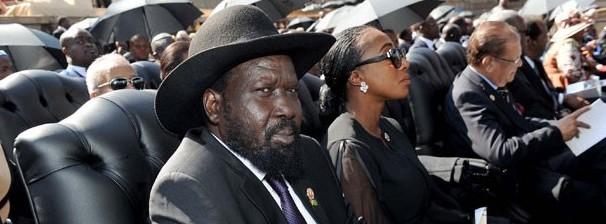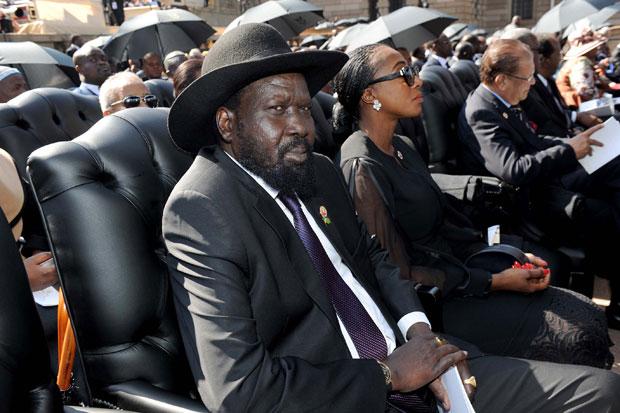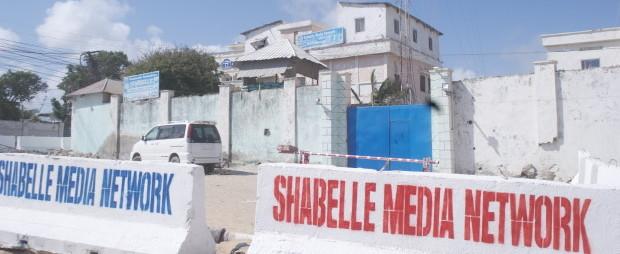Two rationales for imposing sanctions on South Sudan

With the government reluctant to sign the latest peace deal, the UN is considering imposing targeted sanctions on South Sudanese elites.

- President Salva Kiir could face sanctions if he fails to sign IGAD’s peace deal. Photograph by GovernmentZA/GCIS.
The UN Security Council is currently debating a proposed resolution, drafted by the US, that would impose an arms embargo and targeted sanctions on South Sudan in the event that President Salva Kiir fails to sign the new peace agreement by 2 September.
The rationale for an arms embargo is clear. The only question is: why was this not imposed 20 months ago, in December 2013, when the conflict broke out?
Enforcement of an arms embargo will require the cooperation of neighbouring countries – notably Uganda and Sudan – which will require additional measures if it is to work. But in principle it is the right thing to do.
Sanctions against members of the South Sudanese political and military leadership can serve either or both of two purposes. One is an anti-corruption measure. This would be tracking the illicit capital flight of South Sudan’s kleptocrats, with the intent of confiscating their ill-gotten gains and using the funds to benefit the South Sudanese people.
This should be done anyway and is not a political measure as such. Furthermore, it should be simpler to track the illicit wealth of South Sudan’s thieving class than many others, because those individuals long enjoyed the confidence of Western countries and solidarity groups, and never considered that they might be targeted in this way. This means that South Sudan’s kleptocrats have invested in countries that are relatively accessible and transparent, and have taken few precautions to hide their assets.
An international commission of inquiry into the theft of South Sudanese wealth might be able to locate billions of dollars of stolen wealth. But the track records of such efforts in other countries suggest this isn’t likely to solve the South Sudan’s financial crisis.
The second function of individual sanctions would be to punish South Sudanese leaders for failing to take steps to end the war or promote appropriate reform. Given the moral culpability of those who began this war, perpetrated mass killing, and failed to stop the fighting, targeting them in this way is a deserved first step.
But we should not imagine that punishment of this kind is the same as addressing South Sudan’s political economy of warlordism. The two are different.
South Sudan’s politics operates on market principles, not essentially dissimilar to northern Sudan, but perhaps rather cruder. Political survival is determined by the iron laws of the marketplace: the politician needs a political budget sufficient to secure the loyalty of subordinates and to compete with rivals. Sanctions and other coercive financial measures squeeze politicians’ political budgets, but they don’t reduce the demands that they face from rivals and clients. They simply make political business management more difficult.
The major reason for South Sudan’s current political crisis is that the financial collapse following the shutdown in oil production in 2012 made the country’s patronage system unworkable. The war worsened the financial vice on the government but did not change the character of the system. Targeted sanctions would further reduce the availability of political finance, and as a result make South Sudan’s system even less governable.
The reason President Kiir is reluctant to sign the new peace agreement in Addis Ababa is not because he is evil or irrational. It is because he has a limited and shrinking political budget, the price of loyalty has not decreased, and the number of claimants on those funds is increasing. In the current political marketplace system, he cannot make peace without more money. And as the central political budget shrinks, the degree of political-military fragmentation increases.
On 17 August, the original deadline for signing the peace deal set by the Intergovernmental Authority on Development (IGAD) mediators, Kiir dismissed a number of governors, replacing them with his own loyalists – a simple and classic means of reducing political financial outlay. However, without an increase in oil revenues or an inflow of political-financial support from a foreign sponsor, the president is still stuck.
Political accommodation on a dwindling political budget is political suicide. His best bet is prevarication: to manage the crisis from week to week in the hope that an unanticipated turn of events will work in his favour. Meanwhile, he will assess whether the threatened sanctions will be worse for his political survival than the IGAD agreement.
Sanctions aren’t necessarily the wrong step, but they’re a tool, not a strategy. The threat of sanctions might bring Kiir back to the negotiating table to sign. And, threatened or imposed, they might also accelerate the political management crisis in Juba. Individually-targeted sanctions strike at the personalised political business management that form the sinews of South Sudan’s governance.
The deeper problem, however, is that the IGAD agreement will not, of course, resolve any of South Sudan’s systemic problems in of itself. If peace is to come to South Sudan, the marketised political system needs to be transformed. This means democratisation, but the international coercive toolkit doesn’t have the instruments for this task. It is unfortunate that peace in South Sudan is defined in terms of what the US and other external players can do, rather than what South Sudanese people need.
Alex de Waal is Director of the World Peace Foundation.





